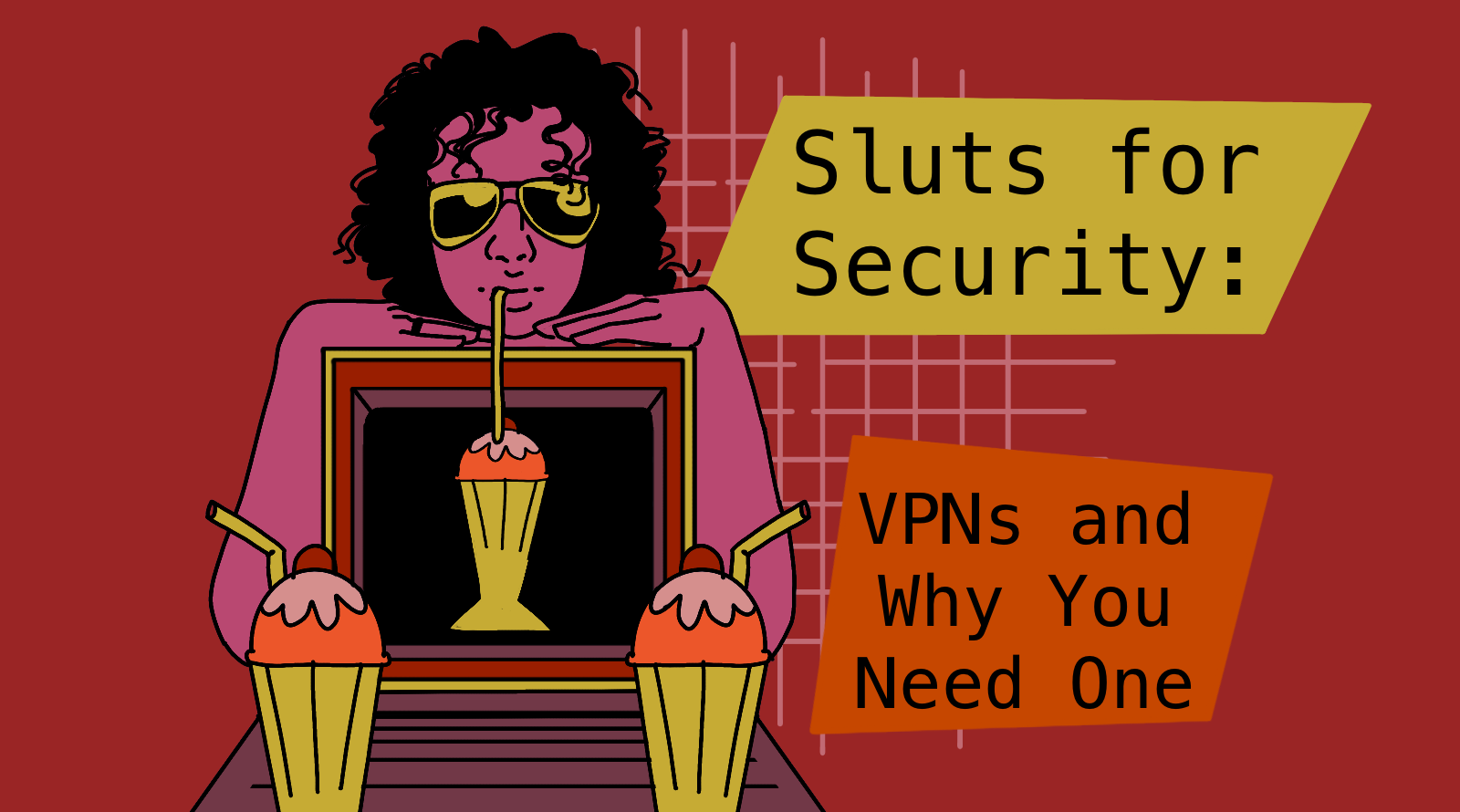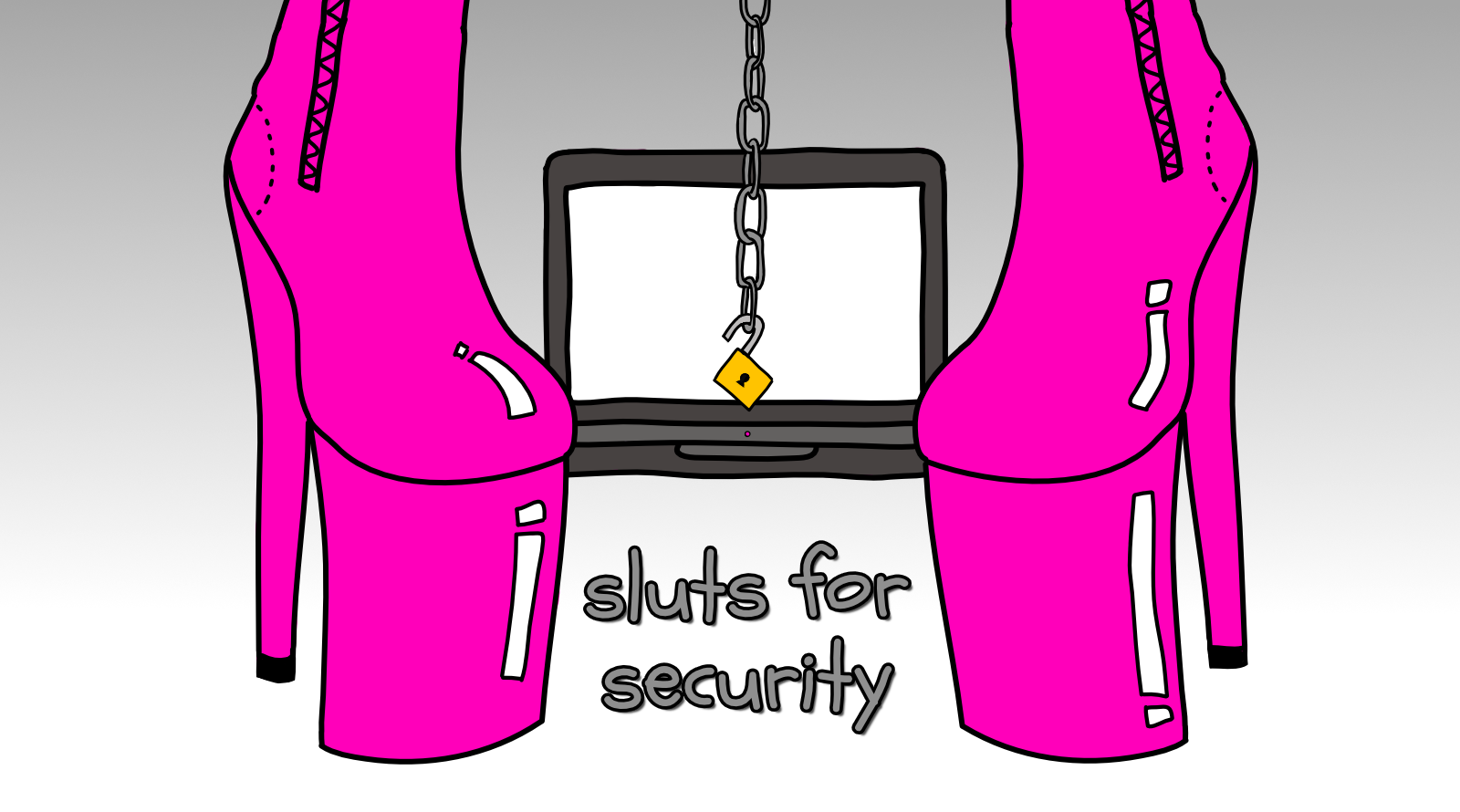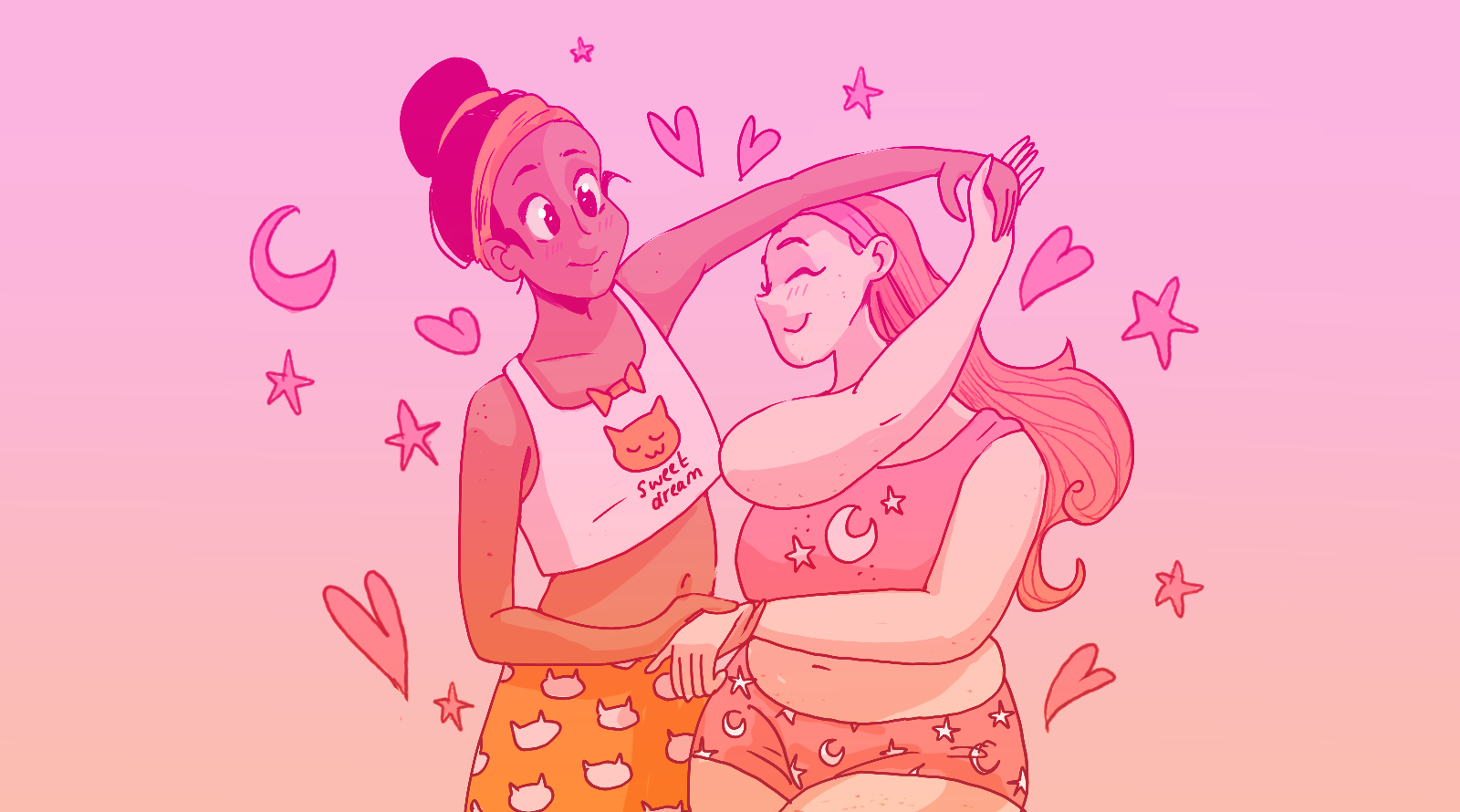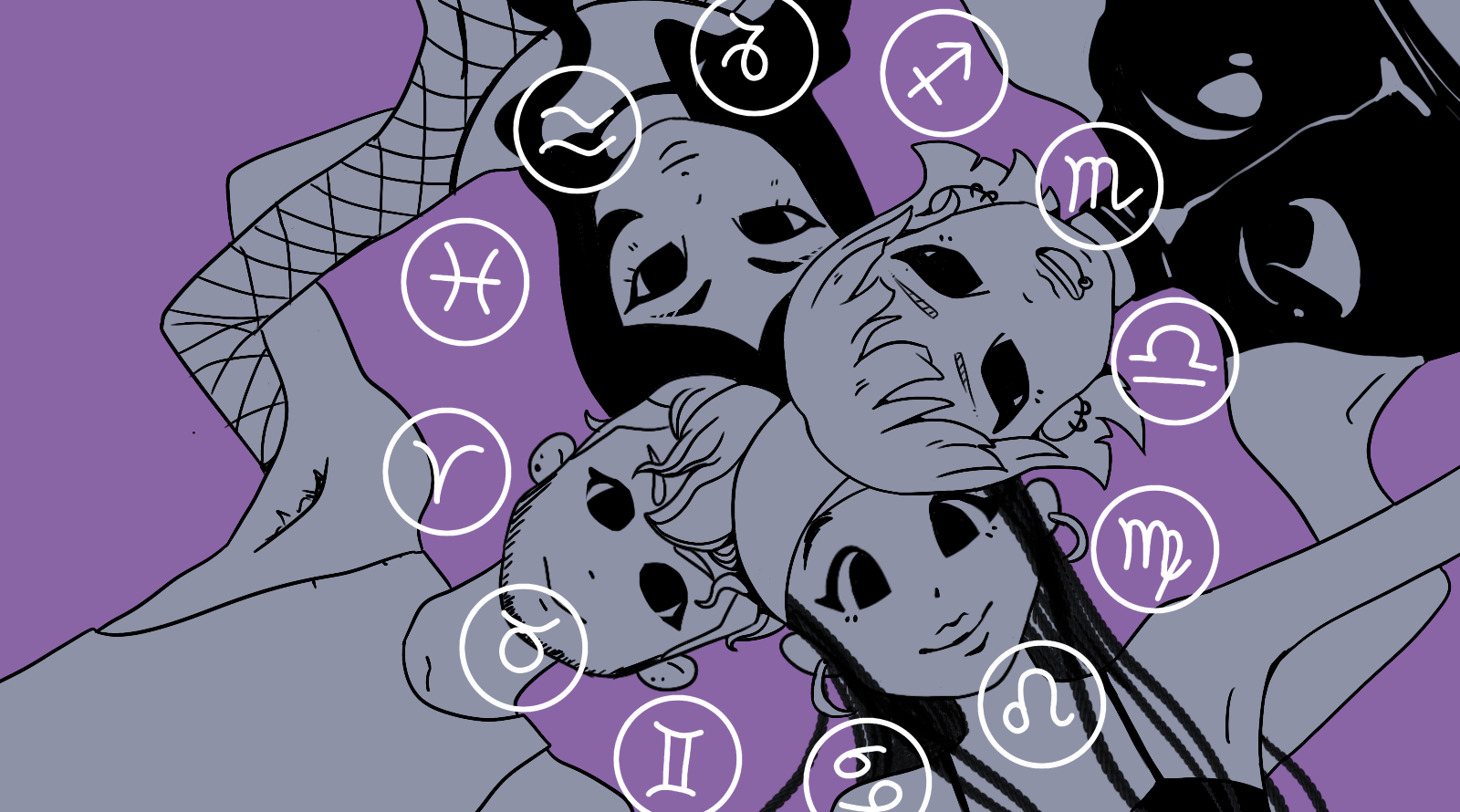Everyone likes to feel secure when using the big, bad internet - and in these troubled modern times, sex workers across the globe are hyper-aware of the need for privacy online. You may have come across the sales pitches of tech companies flogging virtual private networks (VPNs) for a few bucks a month and wondered if they're the answer to all your problems. Total anonymity, military-grade security, easy to use, and no apparent downsides. Seems too good to be true, right?
Unfortunately, like most things in life, it’s not that simple. As a sex worker, VPNs can help protect your privacy on the internet - but they’re not a solution in every situation. In this article, we'll sort out the truth from the hype about VPNs so you can make the best use of this technological tool.
What is a VPN?
A VPN is an online service that sets up a ‘secret communications channel’ between two computers. It’s a secure tunnel that allows your device to travel incognito on the World Wide Web, replacing your location information (such as your IP address) with different details. When a VPN is configured correctly, it's practically impossible for anyone to spy on your data while it’s traveling between your device and the VPN service.
Going to this effort might sound complicated. But as many of us well know, both businesses and governments often try to monitor and restrict what we do on the internet. Your ISP might censor certain websites or services because they're forced to by their government. Some ISPs track everything you do online and sell that information to a data broker. Some online services are only available in certain countries. Some countries even go as far as to actively monitor internet traffic in real time.
You can put a stop to this stuff by using a VPN. When you use a VPN, these types of organizations can't see what you're doing online in any detail. All they see is "Oh, this computer is talking to that computer we’ve never heard of", instead of "Hmm, this computer is talking to that website we don't like and is chatting to those people we really hate".
What a VPN Can Do
With a VPN, all your internet traffic can be configured to go back and forth via that secure channel and exit via the computer on the other side - which doesn't have to be in the same part of the world as you - out to the wider internet. Think of it like a forwarding service but for internet traffic. It’s perfect for pretending to be in another geographical area or trying to disguise what you're doing online.
Imagine you live in a part of the world that bans access to sex-related content. You could use a VPN so that you appear to be in a different location that doesn't censor that content, leaving you free to access what you need without restriction. Besides bypassing censorship, a VPN can also be used when traveling in certain countries that restrict free speech, prohibit certain activities, or actively monitor the internet access of visitors.
While most internet services these days use encryption (aka HTTPS, often appearing as that ‘padlock icon’ in the address bar of your web browser), not all information on the Internet is encrypted. If someone is monitoring your internet activity, (this can happen when you’re using public Wi-Fi, for example), they'll be able to see the contents of your communications. By funneling all your internet traffic via a VPN, this information will be encrypted between your computer and the VPN provider.

What a VPN Can’t Do
It’s important to know that a VPN isn’t a cure for all your privacy worries. There are some circumstances where having a VPN won’t solve your problems.
A VPN won't help you if someone is already monitoring your device via some sort of spyware/malware or if they have the password/PIN. A VPN only protects traffic in motion between two devices, so if someone can see what's happening on your smartphone or laptop before it's sent, a VPN won't make a difference.
A VPN also won't do much, if anything, to stop you from being identified online unless you also take further precautions. If you're logged into Google, that search engine will be able to track and remember the search terms you use. If you're logged into Facebook, that social media platform monitors what you're posting (and can even track which websites you visit afterward.) VPNs don't protect against tracking cookies, browser fingerprinting, or any other type of device-based tracking. They don't provide anonymity by default.
It's important to keep in mind that VPN traffic can be relatively easily identified. Netflix keeps a list of known VPN providers and regularly blocks the IP addresses they use to prevent users from watching content outside their geographical region. Many other platforms and online services, and even some governments, use similar strategies.
So, if you’re serious about privacy, a VPN is only one tool in your arsenal. Being aware of the other ways you can be tracked on the Internet is a must, as is keeping your device free of spyware and malware.
Choosing a VPN Service
Not all VPN providers are created equal. Here are some things to keep in mind before handing over your hard-earned money and trusting them with your internet security.
Firstly, make sure your VPN provider doesn't keep logs of your Internet activity. If a service does keep logs of its users, and that service is subpoenaed by the courts or raided by the police, your activity on the internet could be exposed. Most providers claim not to keep logs and most are honest about it. There’s no way to know if they’re lying, until it’s too late.
If you want a secure, reliable service, it’s usually best to avoid free or cheap VPN providers. Running a VPN service is a big undertaking - there are servers, internet bandwidth, customer support, and marketing costs to cover! If someone is offering you a free or ridiculously cheap VPN, they're probably making money off you in some other way, possibly one that isn’t in your best interests.
Depending on your level of risk, it could be a good idea to pay for a VPN with a more anonymous method of payment, such as cryptocurrency (although it isn't always 100% anonymous) or a gift card or prepaid credit card purchased with cash. Conscientious VPN providers will allow you to pay via these methods, to ensure your anonymity.
VPNs can be helpful…but be aware of their limitations
For sex workers, VPNs are an important tool. But in order to stay safe online, you must be aware of the limitations so that you can make sure you’re protected.
VPNs are great at bypassing censorship and fighting back against mass surveillance. If you need to appear to be using the internet in a different geographical region, they’re also very useful. But VPNs are not an all-in-one internet security magic solution! You still need to make sure that your device is free of malware and spyware. You still need to be aware of the ways websites and online services track you and collect your data. And, of course, strong passwords, a password manager, and using two-factor authentication are still vital, to protect your security.





